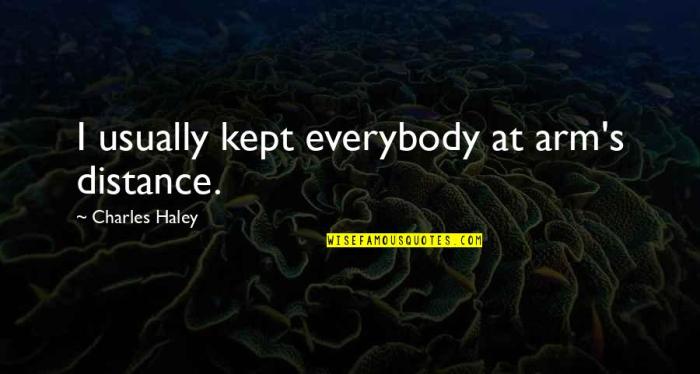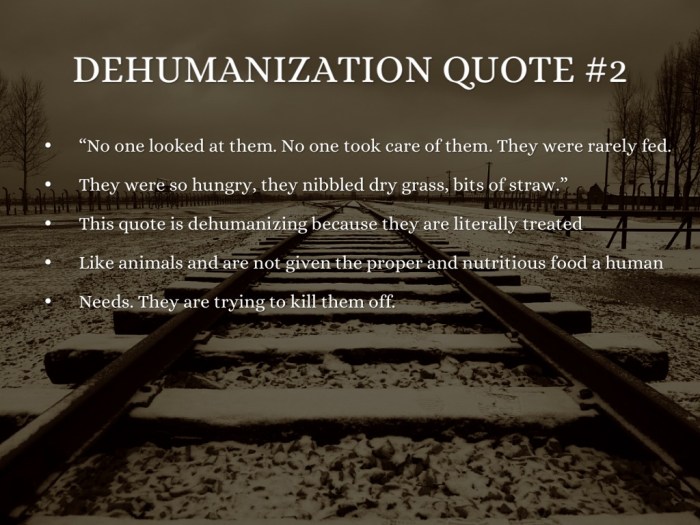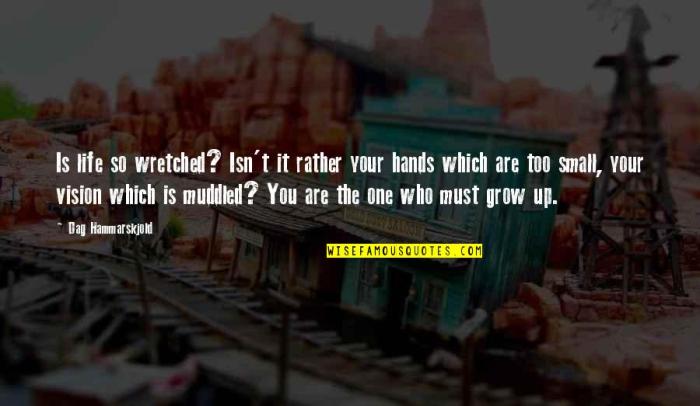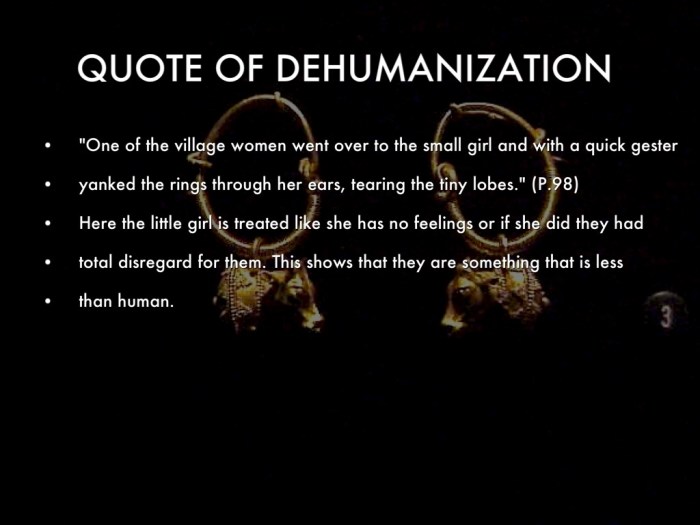Quotes of dehumanization in Night serve as a chilling testament to the horrors endured by Holocaust victims. Elie Wiesel’s memoir offers a profound exploration of the Nazi regime’s systematic annihilation of human dignity, a process exemplified through dehumanizing language, actions, and conditions.
Throughout the novel, Wiesel’s evocative prose captures the gradual erosion of prisoners’ identities, the erosion of their humanity reduced to mere numbers and stripped of their individuality. These quotes provide a poignant lens through which to examine the profound psychological and emotional toll inflicted upon victims of dehumanization.
FAQs: Quotes Of Dehumanization In Night
What is the significance of dehumanization in Night?
Dehumanization in Night serves as a central theme, highlighting the Nazis’ systematic efforts to strip prisoners of their humanity. Through dehumanizing language, actions, and conditions, the Nazis aimed to break the prisoners’ spirits and facilitate their control and exploitation.
How do the quotes in Night illustrate the process of dehumanization?
The quotes in Night vividly depict the various forms of dehumanization experienced by the prisoners. They reveal the gradual erosion of prisoners’ identities, their reduction to mere numbers, and their subjection to inhumane living conditions. These quotes provide a powerful insight into the psychological and emotional toll inflicted upon victims of dehumanization.
What are the broader implications of dehumanization for society?
Dehumanization has far-reaching consequences for society. It undermines human dignity, fosters prejudice and discrimination, and creates a climate of fear and distrust. By examining the dehumanization in Night, we can gain a deeper understanding of the dangers of dehumanizing ideologies and the importance of promoting empathy and understanding.



